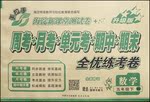题目内容
It is ______ that men and women should share the equal responsibility both at home and in the society.
A. in black and white B. child’s play
C. as easy as pie D. as plain as day
练习册系列答案
 手拉手全优练考卷系列答案
手拉手全优练考卷系列答案
相关题目
书面表达
随着中国经济的发展,私家车日渐增多,很多学生上学都有车接送,为此,同学之间观点不一。请你根据下表中双方不同观点用英语写一篇文章给上海英文星报--Shanghai Star ,介绍这种情况及你对这一现象的看法。
支持 | 反对 |
1.省时、方便; 2.安全。 | 1.拥堵、车祸; 2.易相互攀比。 |
你的看法…… | |
注意:
1. 可适当增加细节,以使行文连贯;
2. 词数100左右;
3.文章开头已为你写好,不计入总词数。
参考词汇:攀比 vie with …
书面表达
In recent years, more and more students go to school in private cars. People have different opinions about this phenomenon.


